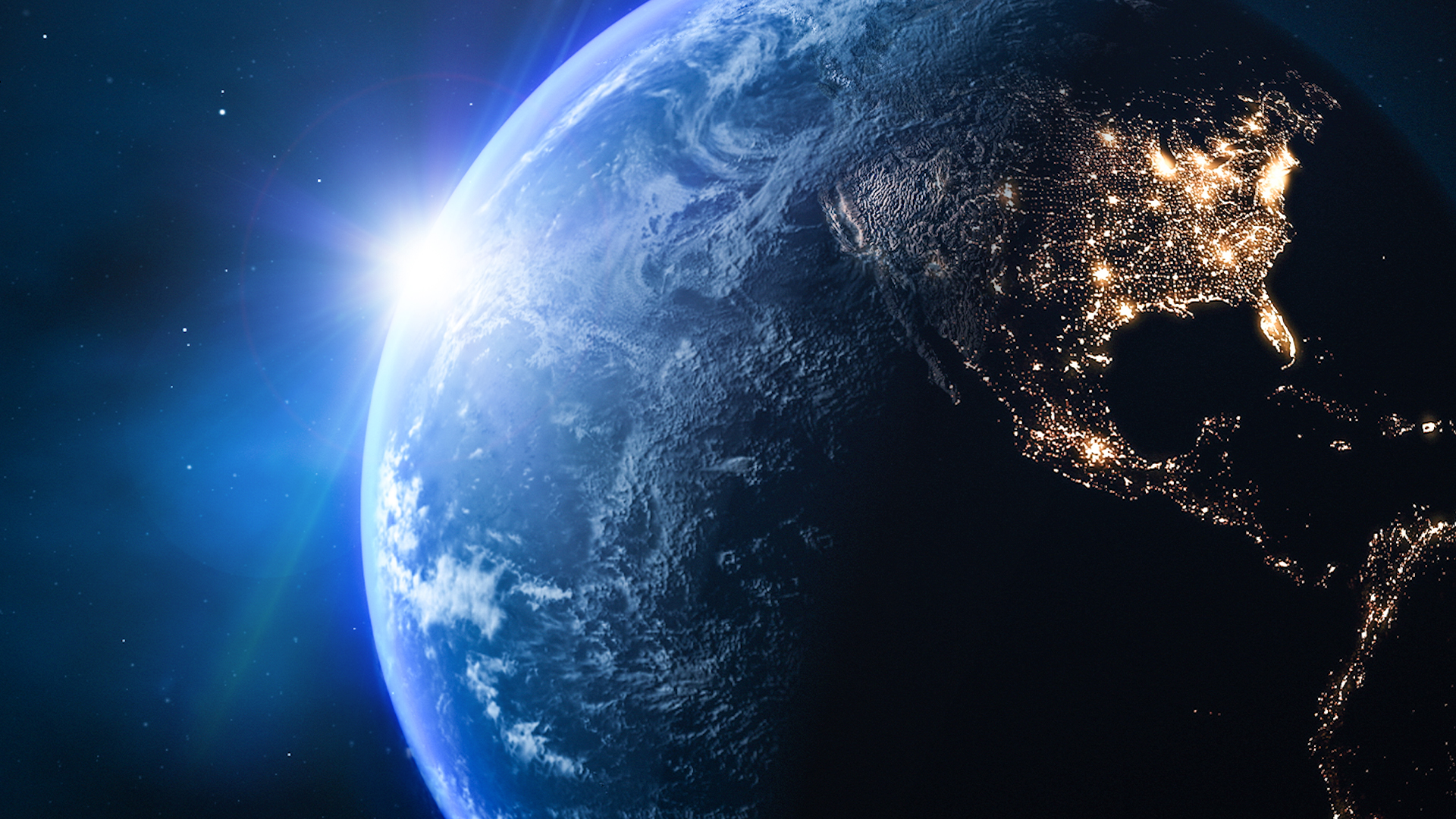Why don't we feel Earth spinning?
Earth moves around the sun at 67,000 mph and makes a full rotation once every 24 hours. So why can't we feel the Earth's rotation?

When you're going around and around on a carnival ride, you feel it — you're pulled outward, and all you can do is hang on. Our planet is rotating much faster than that, so why aren't we all holding on for dear life? Why can't we feel Earth's rotation?
There are two major reasons. One is that Earth's rotation is smooth.
"If you're in a car and you're going at a constant speed on the highway, if you close your eyes and tune out the road noise, you would feel stationary," said Stephanie Deppe, an astronomer and content strategist for the Vera C. Rubin Observatory in Chile.
If that car were hitting the brakes repeatedly, you'd know you were in motion. But because it stays at a constant speed, you feel motionless.
Related: Can you see Earth spin?
Put another way, "we know there's no such thing as absolute motion. The only thing that matters is relative motion," said Greg Gbur, a professor of physics and optical science at the University of North Carolina at Charlotte.
"People like Newton and Galileo pointed this out," he said. "Galileo famously imagined a thought experiment of being in the bowels of a ship. If the ship is sailing on calm water versus the ship being docked at port, you're not going to notice any difference according to the laws of physics."
Get the world’s most fascinating discoveries delivered straight to your inbox.
And like being in a car or on a ship, everything on Earth is also moving with us. If you roll down a car window on the highway, you get a face full of wind as the car slams you into millions of air molecules. But inside the car with the window up, the air moves with you and you don't feel the wind.
Likewise, our planet's atmosphere is moving just as fast as we are — so, relative to us, it's stationary.
The other reason we don't feel Earth's rotation is gravity. "The force of gravity holding us to the Earth is much, much, much stronger than the force that would send us flying outward," Deppe said.
The feeling of being pulled outward from a carnival ride, or a car doing doughnuts, is called centripetal acceleration. "It's the feeling of inertia," Gbur said. "Your body wants to keep going in a straight line, but if you're in your car, the car is trying to pull you in a circle."
Earth's spin pulls everything outward in the same way, but the force keeping everything stuck to the ground overpowers that pull.
"The acceleration of gravity is about 9.8 m/s^2 on the Earth's surface, and the reduction of that due to the rotation of the Earth at the equator, where things are moving the fastest, is about 0.03 m/s^2, which is measurable but really tiny compared to what we feel from gravity itself, so we don't notice it," Gbur said.

Ashley Hamer is a contributing writer for Live Science who has written about everything from space and quantum physics to health and psychology. She's the host of the podcast Taboo Science and the former host of Curiosity Daily from Discovery. She has also written for the YouTube channels SciShow and It's Okay to Be Smart. With a master's degree in jazz saxophone from the University of North Texas, Ashley has an unconventional background that gives her science writing a unique perspective and an outsider's point of view.

